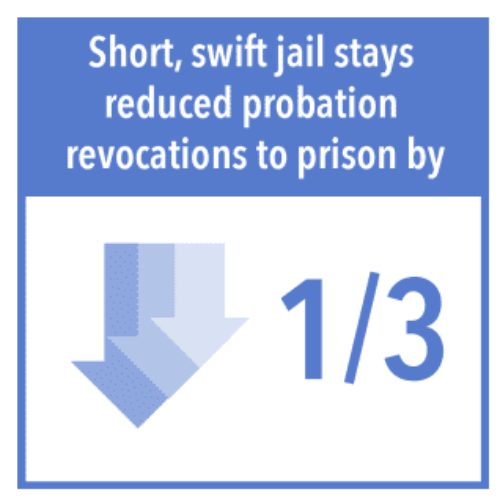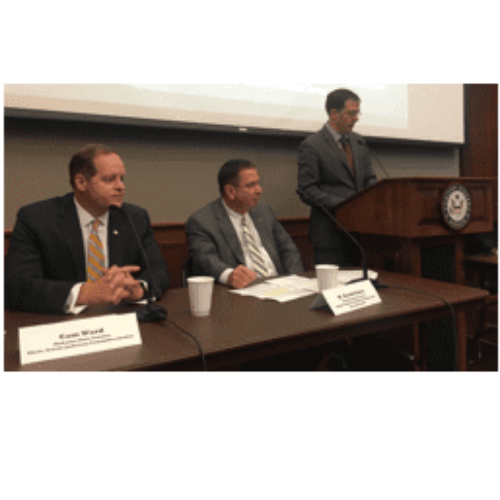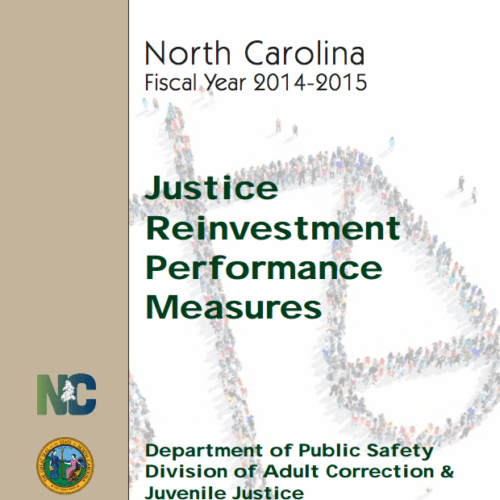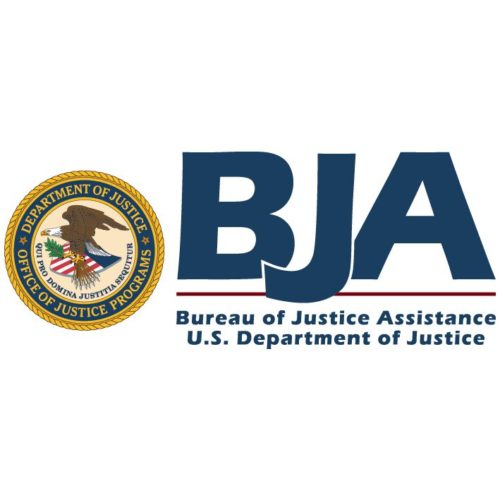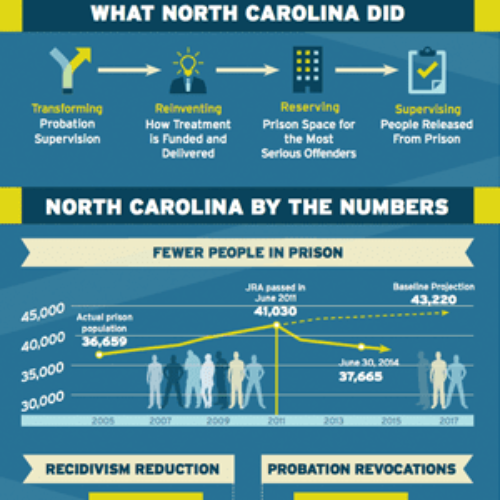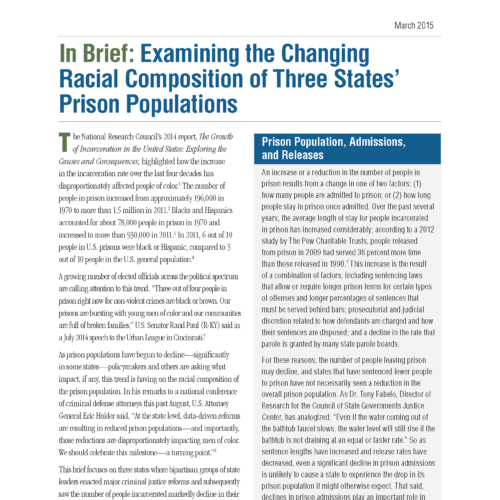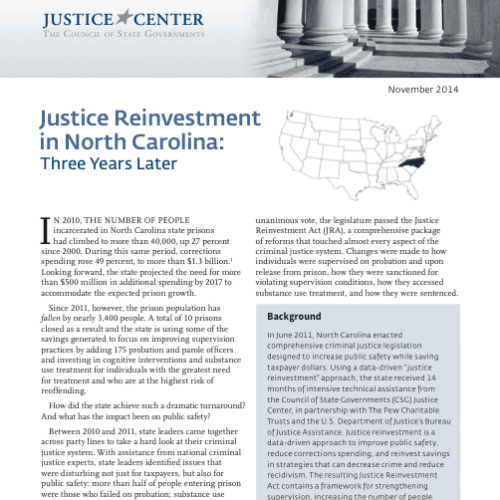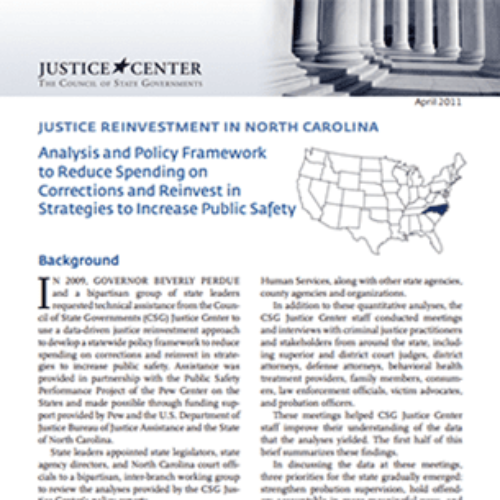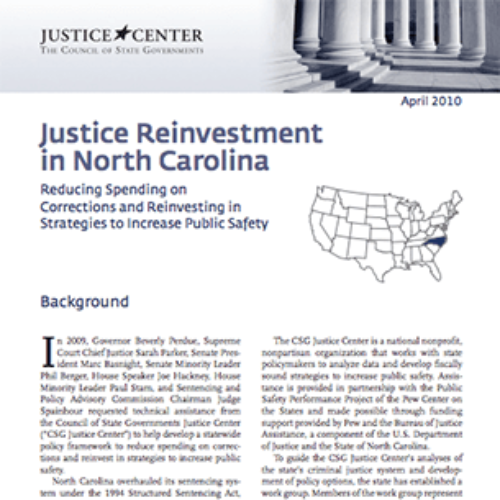Justice Reinvestment in North Carolina
The Problem
In 2011, North Carolina’s prison population was projected to grow by 10 percent over the coming decade. At the time, probation revocations accounted for more than half of prison admissions, and only about 15 percent of people released from prison were receiving supervision.
How JRI Helped
From 2010 to 2011, CSG Justice Center staff worked with North Carolina state leaders to develop data-driven policy options designed to reduce corrections spending and increase public safety. CSG Justice Center staff interviewed stakeholders across the criminal justice system and conducted a comprehensive analysis of North Carolina’s criminal justice data. Signed into law in 2011, the Justice Reinvestment Act
- Required mandatory supervision for everyone convicted of felonies upon release from prison;
- Empowered probation officers to use swift and certain jail sanctions in response to violations of conditions of supervision;
- Increased sentences for people convicted of repeat breaking-and-entering offenses; and
- Provided substance use treatment, cognitive behavioral services, and other evidence-based programming to people on supervision who have the greatest need for treatment and are at the highest risk of reoffending.
Implementation and Impacts
Compared to the trends at the time of enactment, in 2021 North Carolina’s probation revocations were more than 50 percent lower, total admissions to prison were 43 percent lower (due in part to the COVID-19 pandemic), and the state’s prison population dropped 28 percent, allowing the state to close 11 small prisons. The state’s 2020 overall crime rate was 32 percent lower than it was when JRI legislation was enacted. North Carolina reports saving and averting more than $543 million.
Between 2013 and 2016, the state invested more than $47 million, largely in improving supervision practices by hiring 175 probation and parole officers and investing in cognitive behavioral interventions and substance use disorder treatment for people who have the greatest need for treatment and who are at the highest risk of reoffending.
The CSG Justice Center provided technical assistance to North Carolina on the implementation of its JRI policies. In particular, CSG Justice Center staff helped North Carolina redesign its treatment program for people on supervision, measure program fidelity, and implement swift and certain sanctions.











